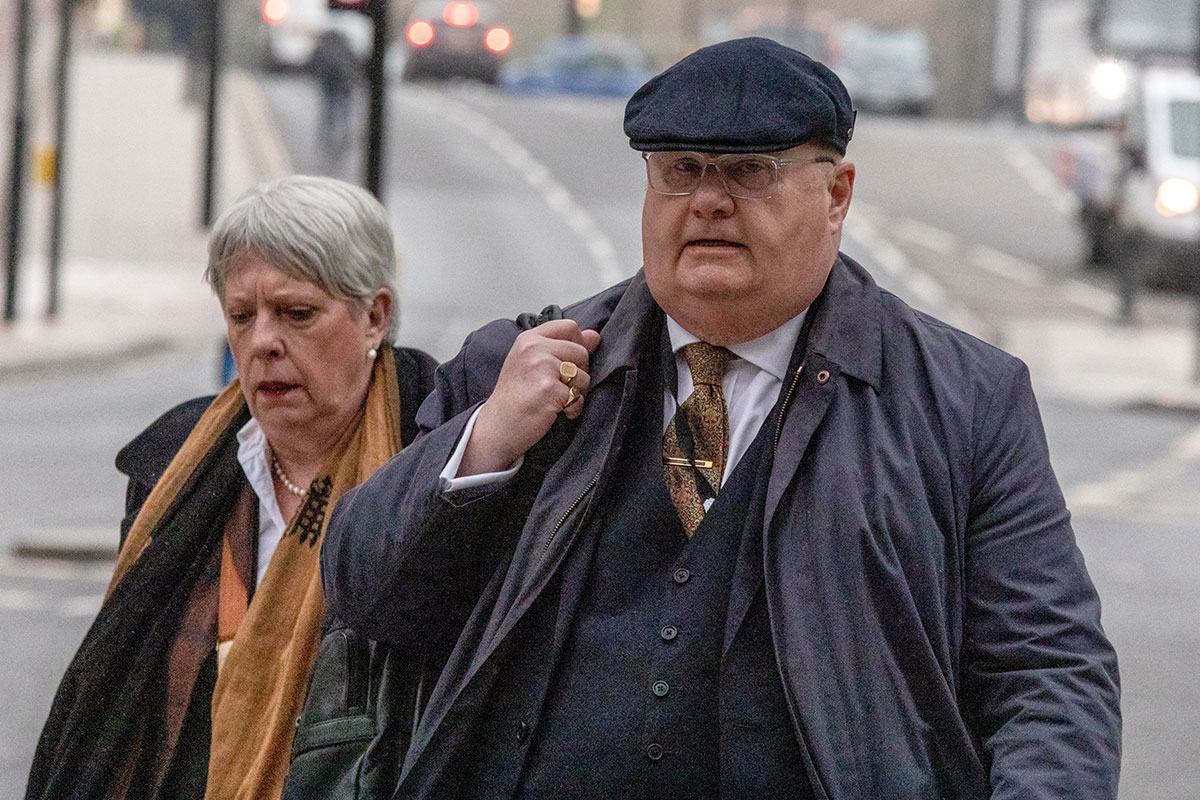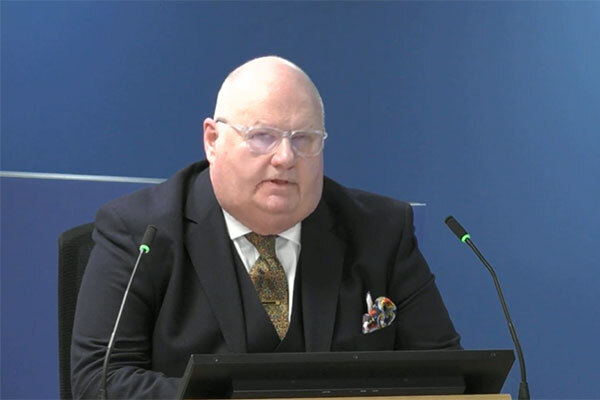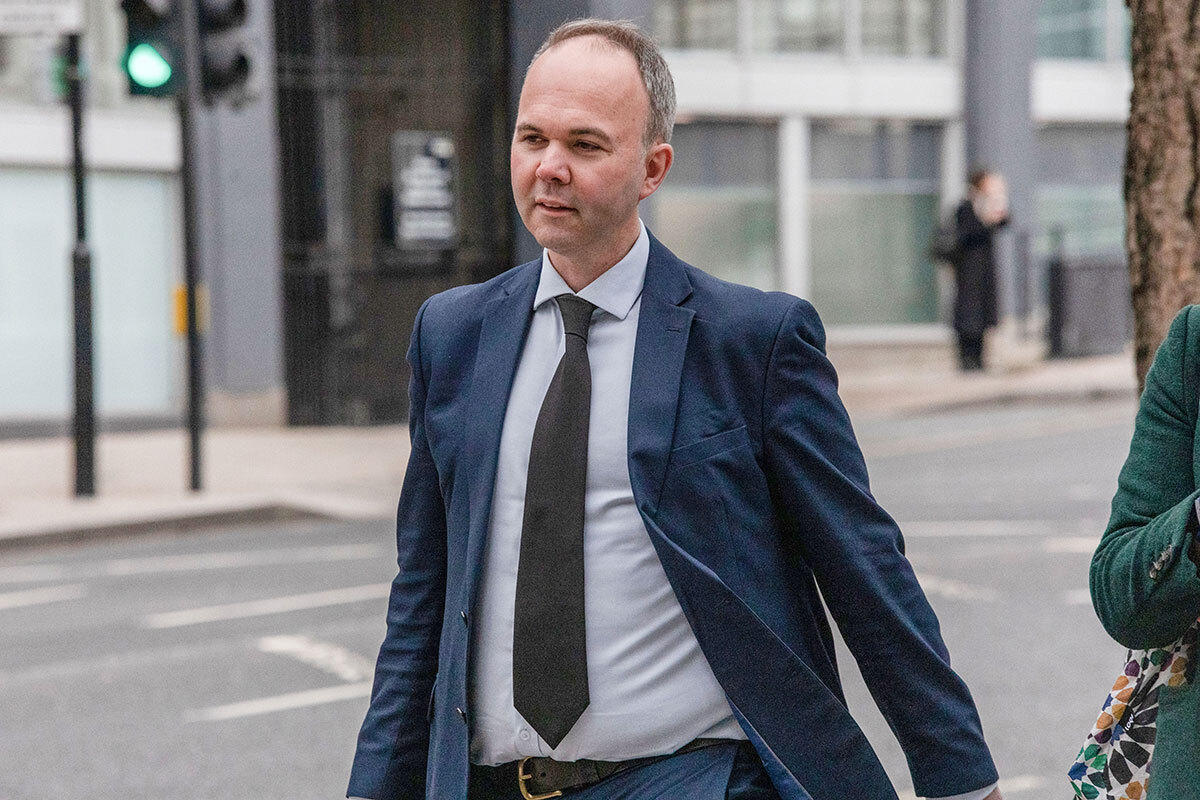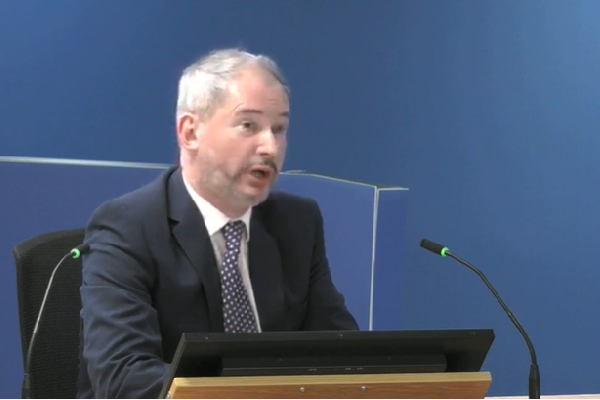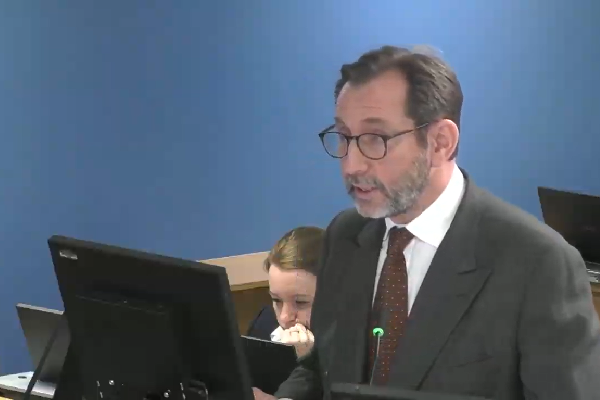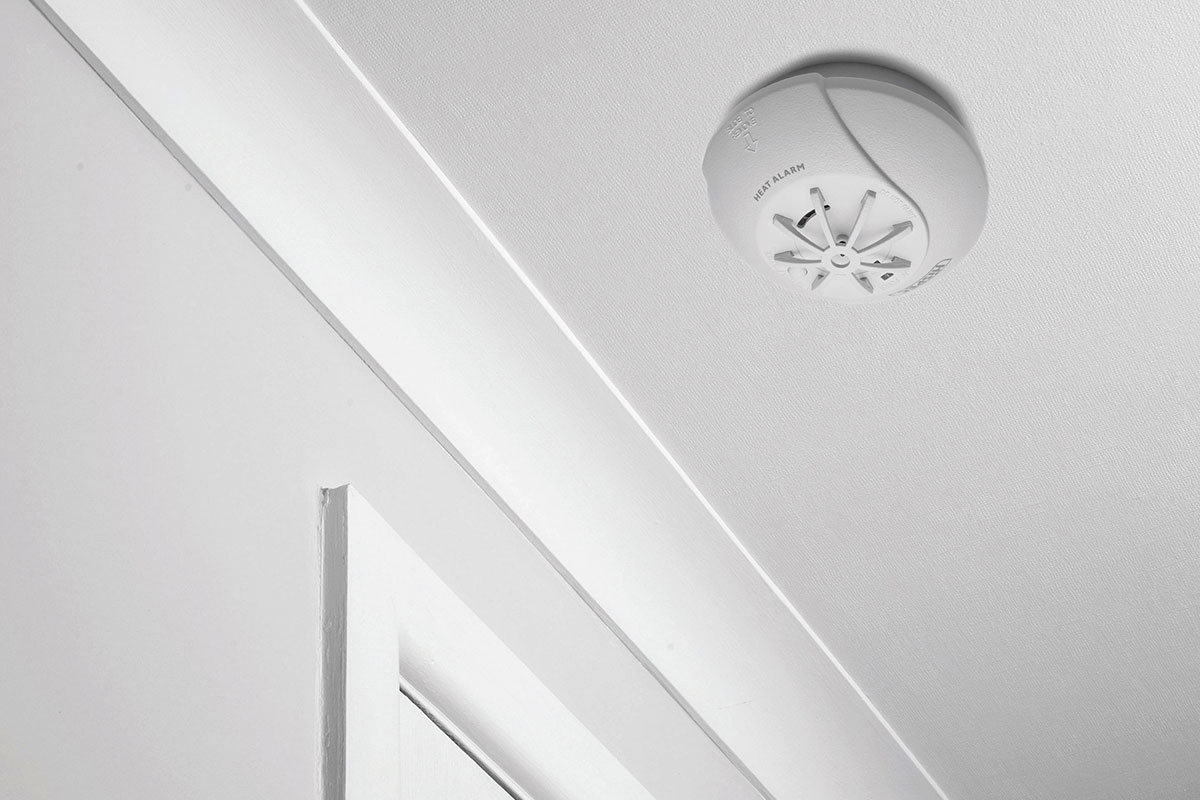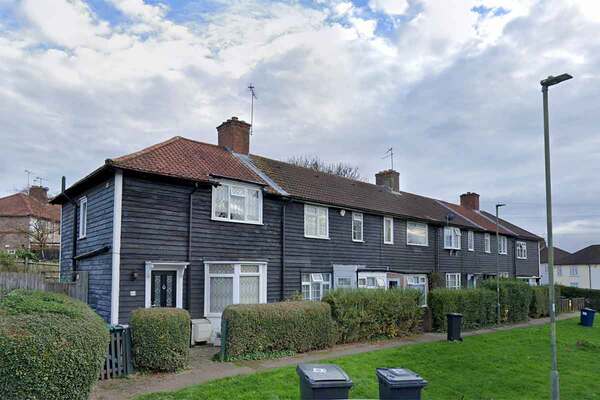Pickles insists he ‘could not have made a difference’ to Grenfell as he gets number of victims wrong
Former communities secretary Eric Pickles insisted that a stronger response to coroner’s crucial recommendations in 2013 would not “have made any difference whatsoever”, as he closed his long-awaited evidence to the Grenfell Tower inquiry with a statement that got the number of victims wrong.
Asked, like many key witnesses, what he might have done differently given his time again, Mr Pickles said he was initially intending to say that he should have expressly confirmed that he accepted the recommendations of a coroner investigating six deaths in the Lakanal House fire when he replied to her letter in 2013.
But he said that he had instead “come to the view” while giving evidence that it would not “have made any difference whatsoever”, adding that officials in the building regulations department had a “mindset” that “just simply ignored what was happening”.
“We will see various court cases that will put it together, but ultimately it comes down… to the nameless, I think it’s 96 people, who were killed in the Grenfell fire. It’s them we should think about when we’re arguing the toss,” he added.
The Grenfell Tower fire in fact killed 72 people, all of whom have been named. For many years, the official death count of the 1989 Hillsborough Stadium disaster was 96, although it was revised up to 97 following the death of a fan injured in the crush in January.
Mr Pickles had earlier apologised for being “discourteous” after he suggested the inquiry should move on more rapidly from a document he was being questioned about to ensure he could make it to a meeting he had planned for the afternoon.
“Can I respectfully remind you that you did promise we will be away this morning and I have changed my schedule to fit this in. I do have an extremely busy day meeting people… so I would urge you to use your time wisely,” he said.
He later apologised and told the inquiry that he had cancelled the meeting.
Mr Pickles, who was communities secretary at what is now the Department for Levelling Up, Housing and Communities (DLUHC) from 2010 to 2015, replied to the Lakanal House coroner in May 2013.
Among other issues, the coroner had recommended encouraging housing providers to retrofit sprinklers, install information boxes outside high rises, and review official guidance on fire safety “with particular regard to the spread of fire over the external envelope of the building”.
Mr Pickles’ response said a letter had recently been sent on sprinklers and branded the ‘premises information box’ recommendation “unnecessary and disproportionate”.
With regard to the building regulations guidance in Approved Document B, he said that an already-scheduled formal review would take place by 2016-17, but made no further commitment.
As the inquiry has repeatedly heard, this review of the guidance was repeatedly delayed, not prioritised and had barely begun by the time of the Grenfell Tower fire in June 2017.
In a statement to the inquiry, the DLUHC has accepted that Mr Pickles’ response was “not well structured and is unclear and difficult to follow”.
Asked if he agreed, Mr Pickles said: “I was clear that I accepted [the coroner’s recommendations]. I suppose if I had continued as secretary of state, everything would have been hunky dory.”
He added that he had been given advance sight of the department’s statement by the current secretary of state, Michael Gove, who was “kind enough to say he thought I’d appear throughout quite properly”.
Mr Pickles insisted when pressed that he had not sought to change what the department said about him in the conversation he had with Mr Gove, saying he would have viewed doing so as “deeply dishonourable”.
He said he had been told by civil servants that the recommendation concerning the building regulations was not “safety critical”.
“Did you ask your officials how it was the case that there was nothing that was safety critical… given that it was in a recommendation following an inquest into six deaths, including the deaths of three children?” asked Richard Millett QC, lead counsel to the inquiry.
“The fate of those children in particular… stays very much central. But the argument was that [Approved Document B] was difficult to read, but people understood what it meant and it was not safety critical,” Mr Pickles said.
“As secretary of state, do you accept it was your ultimate responsibility to ensure that your department followed through with the response to the coroner, giving the recommendations the ministerial and departmental responsibility they deserved?” asked Mr Millett.
“Of course, it’s got to be my responsibility,” said Mr Pickles. “Even if I wasn’t aware, ultimately it’s my responsibility. But I have to say as a matter of fact there was no indication from anyone that there was a problem, and that I think is critical.”
He said that the building regulation officials were “living in an isolation bubble” and if he had known that they were struggling with their workload, he would have “addressed it in a kind way rather than a scolding way”. “I would have wanted to be alongside them, because that’s how you bring the best out of people,” Mr Pickles said.
The department has also accepted a “failure” not to have done more to learn from the Lakanal House fire and other large blazes before the Grenfell fire.
“Do you accept that the failure to do more… was a failure on your part as secretary of state?” asked Mr Millett.
“On the basis that I’m responsible for everything,” said Mr Pickles. “The fact that I didn’t know about it, that no one briefed me… is no reasonable excuse.”
Earlier, Mr Pickles had insisted that a government edict on deregulation, which required one and then two rules to be removed for every rule introduced, did not apply to the building regulations or fire safety.
Officials have previously given evidence that this policy was a major factor in not completing the review or toughening standards, saying that regulation was seen as a “dirty word” in the department at the time.
Mr Millett presented an email sent by a press officer to officials in the building regulations department in June 2011 titled “Pickles introduces new red tape test for department”.
It said “all future policy at DCLG [Department for Communities and Local Government] will be subject to new bureaucracy busting tests” and added that the department was conducting a review of building regulations “to identify any opportunities for deregulation”.
“This document has no status,” said Mr Pickles, describing it as “puff” written by a “junior press officer”. “I’m not going to answer a question that suggests this document represents government policy or represents anything other than press releases.”
It was during his examination on this document that he reminded the panel of his afternoon plans.
Mr Pickles was also shown a letter that he sent to Nick Clegg, George Osborne and Vince Cable in December 2011 that outlined a plan for ‘regulatory ins and outs’ from his department.
In a table, “Part B (Fire safety)” was listed as an “overall regulation out”, with estimated savings of £25.4m per year.
When asked about this, Mr Pickles called the letter a “snapshot of naivety” and said it did not reflect what his department went on to do.
He said people are “capable of doing silly things” when they first become secretary of state, but said he “regained from that fairly soon” when he understood the impact of what was being implied.
To support his assertion that Approved Document B was not included in the government’s red tape challenge, Mr Pickles pointed to a letter sent in November 2011 from an official in his department to an official in the cabinet office.
The letter confirmed that Mr Pickles’ department had requested that “fire safety regulations” be removed from the red tape challenge.
In response, Cabinet Office official Will Cavendish said “fire safety regulations” would be “removed from the Housing, Construction, and Planning Administration theme”, but would not be removed entirely “from the Red Tape Challenge process” altogether.
However, further documents in this chain appeared to imply that this exemption related solely to the Regulatory Reform (Fire Safety) Order 2005 – an entirely distinct area of fire safety policy to the building regulations and Approved Document B.
Mr Pickles said the wording had been purposefully “ambiguous” for political reasons. He could not point to a single document which expressly said the document was exempt.
He was also shown an impact assessment, signed by his junior minister Don Foster, directly relating to Approved Document B which said the guidance was “in scope” for deregulatory policies.
“If, as I think you would have it… Approved Document B was not subject to the ‘one in one out’ policy then why was this impact assessment being prepared? And why was it being signed by your minister?” asked Mr Millett.
“This is just part of the normal process,” Mr Pickles said. “And, as I said, if it was necessary in order to comply with the challenge to find a little piece of legislation to remove that would not have presented even the slightest problem to the department.”
Officials have previously said the rule made introducing new regulations effectively impossible.
The former minister replied that he found it “utterly inexplicable” that they believed the deregulatory system applied to officials and said he felt “the line management was not what it should have been”.
“There is Lord Pickles, of course, another explanation…which is that, in fact, your department was always subject, as the documents we’ve looked at together might suggest, to the deregulatory agenda and you’re now seeking to recast that narrative and underplay what was in truth an enthusiasm by your government for a deregulatory agenda which led to a complete absence of proper checks and balances so far as concerned life safety,” said Mr Millet.
Mr Pickles said the suggestion was “unkind” and “would fly in the evidence that you’ve received”.
“Without getting too emotional I swore on the bloody…I swore on the bible. I’m a Christian,” he added, placing his hand on the bible next to him and banging the table.
“I wouldn't come here to make some kind of, you know, to try and just remove responsibility. These things are important.”
In his closing comments, he added: “This is not about deregulation, one in one out, the number of regulations, fancy letters from the prime minister, this that and the other,” he said. “It's the fact that Michelle Udoaka [a three-week-old baby killed at Lakanal House alongside her mother Helen in 2009] should be 13 now. And there we are. We're still discussing it.”
Mr Pickles was made a peer in May 2018, almost a year after the Grenfell Tower fire. He is currently the government's special envoy for post-Holocaust issues.
His evidence concludes the stage of the inquiry examining the actions of government.
The inquiry’s investigation of the immediate aftermath of the blaze begins on Monday.
Sign up for our weekly Grenfell Inquiry newsletter
Each week we send out a newsletter rounding up the key news from the Grenfell Inquiry, along with the headlines from the week
Already have an account? Click here to manage your newsletters
